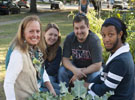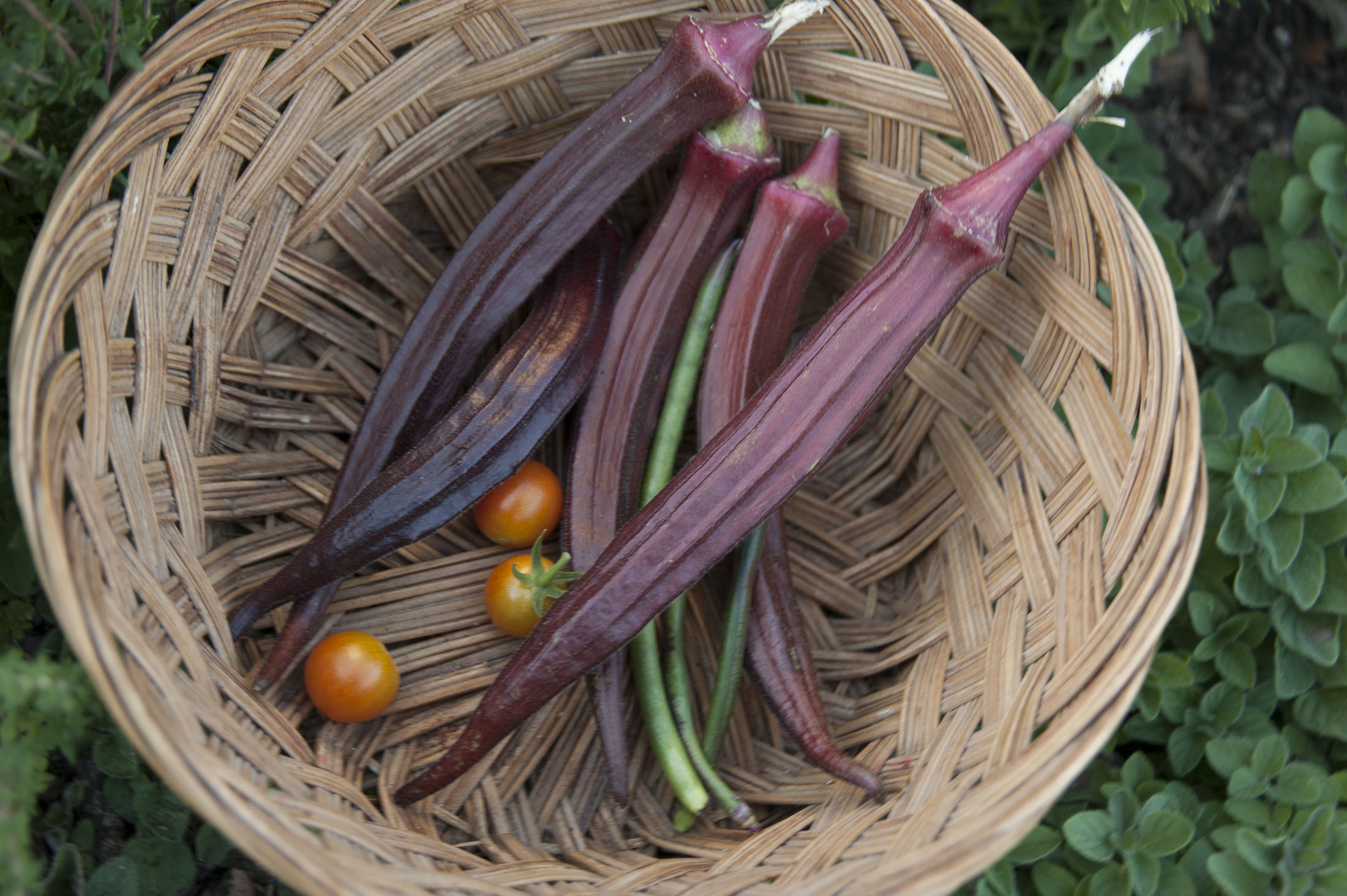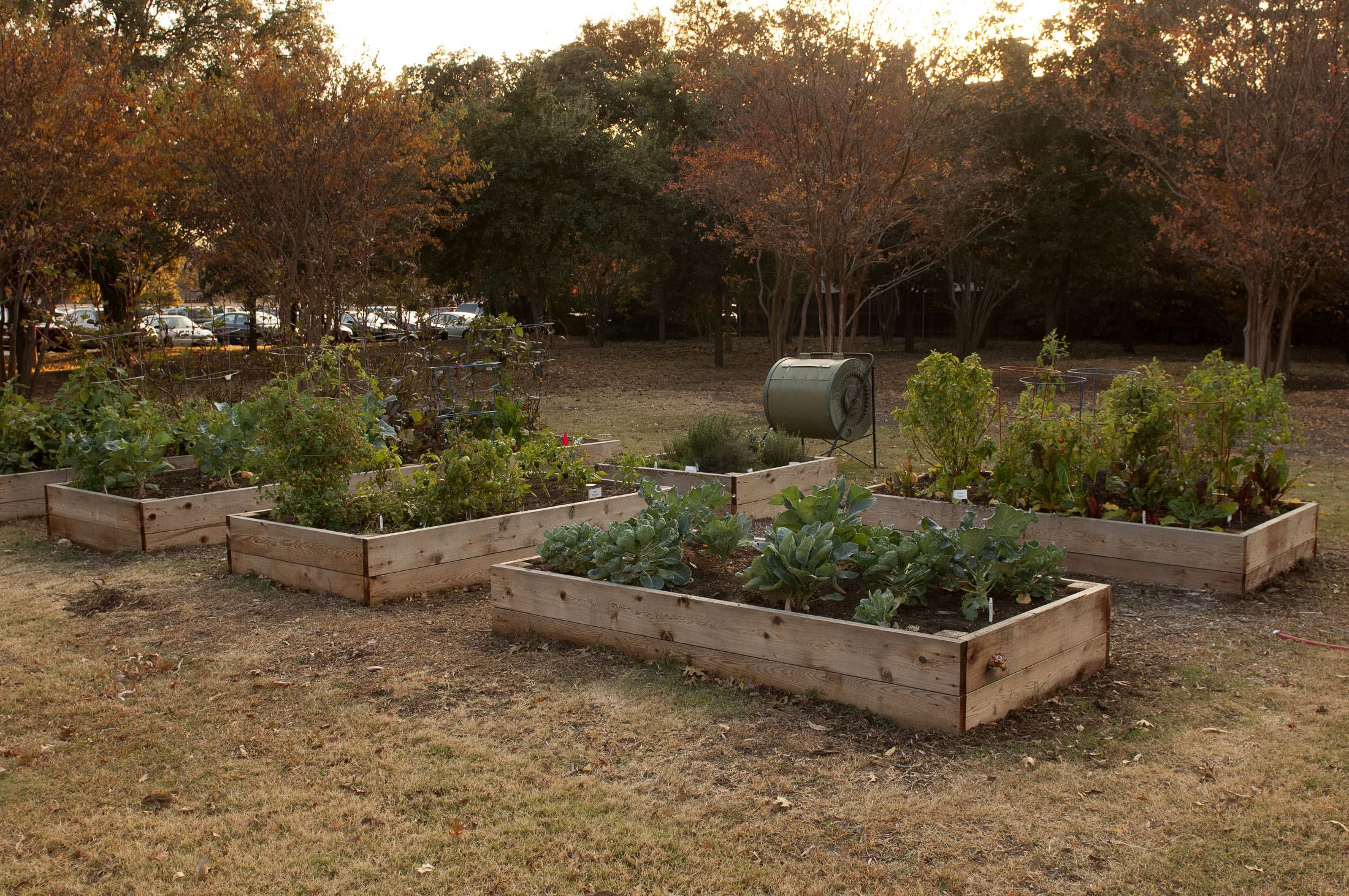SMU garden, eco-evangelism support mission to cultivate body and soul
Think of SMU's Community Garden as the ultimate growth opportunity.

By Denise Gee
SMU News
DALLAS (SMU) — Think of it as the ultimate growth opportunity.
Within SMU’s Community Garden, budding “eco-evangelists” from Perkins School of Theology and a diverse mix of SMU students and staffers share the same mission: To cultivate environmental, spiritual and physical well-being by sowing the seeds of fresh food and fellowship.
Communal gardens are increasingly sustainable platforms for bringing produce and simple farming skills to urban “food deserts,” economically disadvantaged areas where nutritional foods are lacking. But such gardens can have a profound impact on even deeper levels, says Elaine Heath, director of SMU’s Community Garden and McCreless Associate Professor of Evangelism at Perkins School of Theology.
“They can bring together people who’ve been hurt or are afraid of each other,” Heath says, “and, in their process of tending the garden, they can connect to what really matters in life — and their hearts can knit together.” Environment-friendly gardening also can help heal other types of wounds, such as from pollution, “and salvation can be found in taking care of God’s gift of creation.”
While SMU’s Community Garden got its start four years ago, it moved to its current, larger space only a year ago. There, at the corner of Dublin and Daniel Avenues, the soil recently bore its first full harvest, allowing Heath’s Missional Wisdom and Evangelism students to gather and pick okra, kale, broccoli, brussels sprouts and more to share with people in need.
With support from SMU Facility Services and the Office of the Provost, the garden is part of six Perkins School of Theology class assignments and is of interest to people in other disciplines, from members of the sustainability-minded Environmental Society to Lyle School of Engineering students testing irrigation methods, to those in the SMU community curious about homeopathic medicine. “We’ve had a wonderfully eclectic mix of people,” Heath says of the garden’s volunteer help, ranging from the Bhakti Yoga Club to a sizable group of librarians.
But for Masters of Divinity students, the garden is a modern and meaningful way to spread the works and word of God. Amy Spaur sees the positive effects of “holistic evangelism” in a neighborhood and garden she serves north of Love Field, where there is a severe shortage of affordable fresh fruits and vegetables. “The children are especially engaged and empowered,” she says. “Gardening skills can be easily learned and taught, not only to their friends, but even to their parents.”
Larry Crudup sees the garden as a tangible way to witness God’s love. ”I come from a background where you knock on doors to spread evangelism. But that’s not working,” he says. “You’ve got to feed peoples’ physical needs before you can focus on their spiritual needs.”
The garden is a beautiful reflection of life, he says. “God plants us somewhere and grows us somewhere, and at some point, there’s a harvest,” he says. “But we have to help Him do the work to help us.”
Heath is hopeful the Community Garden will engage more students, faculty and staff from across campus, not only to nurture the space and their own spiritual lives, “but to allow the garden to grow even larger to provide food for local food banks.”
To learn more or to volunteer time or resources for the Community Garden, contact eheath@smu.edu or call 214-768-2167.
 |
 |
###
#09783-nr-12/17/12-dg